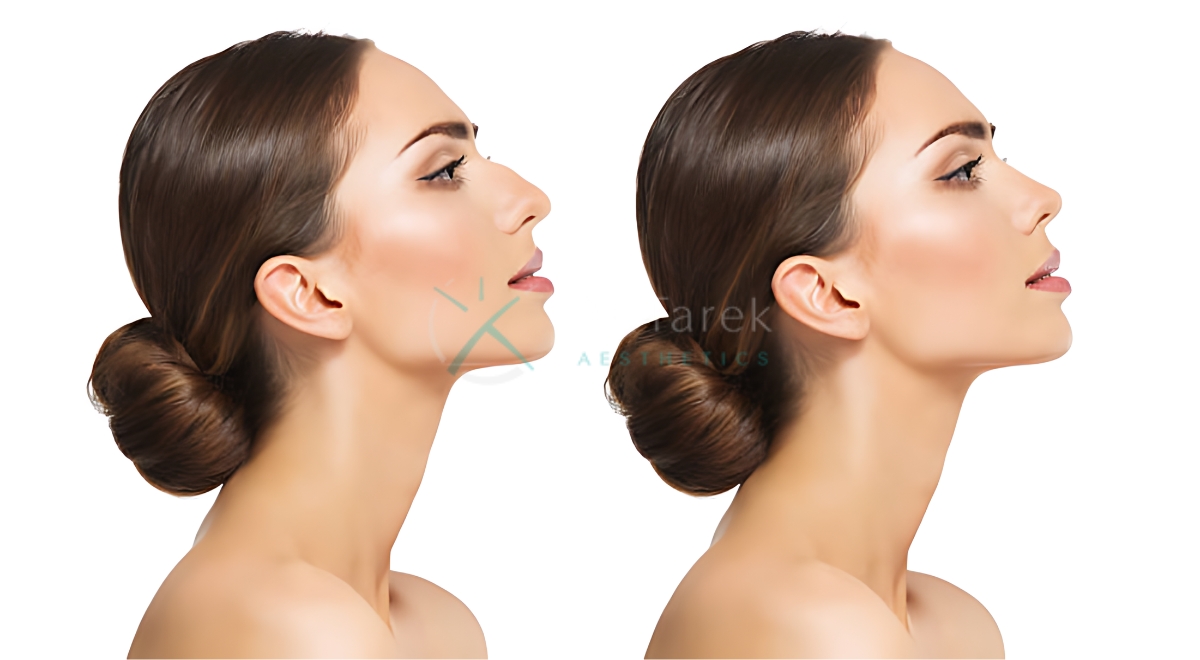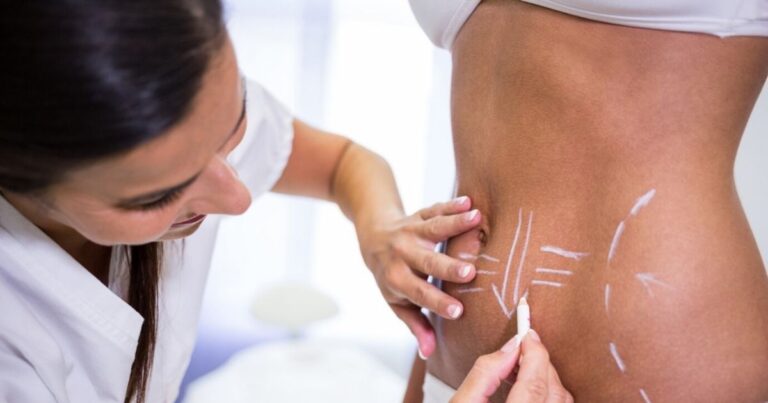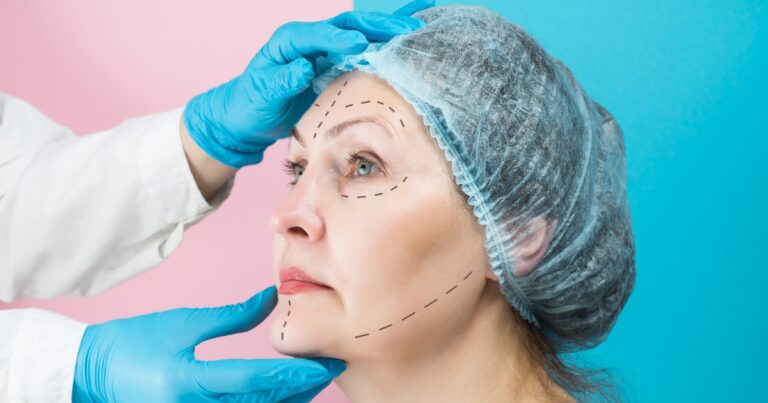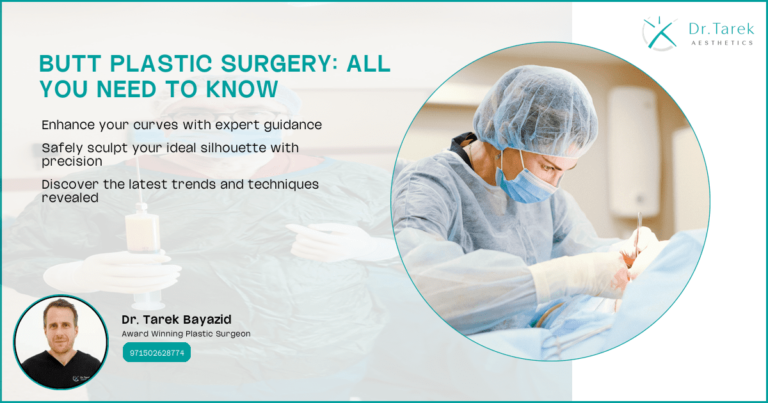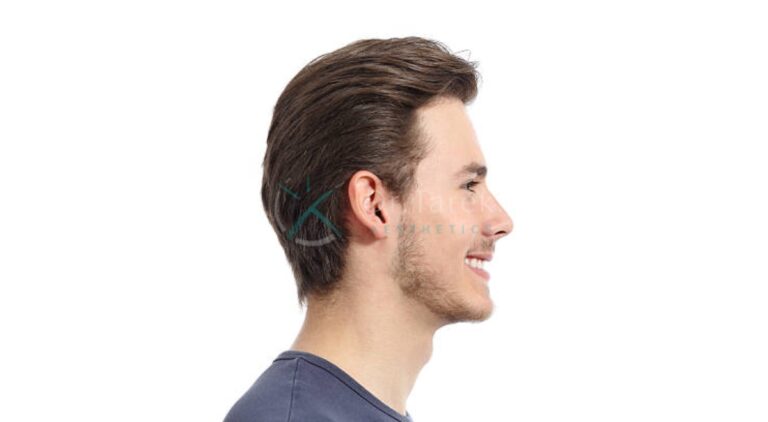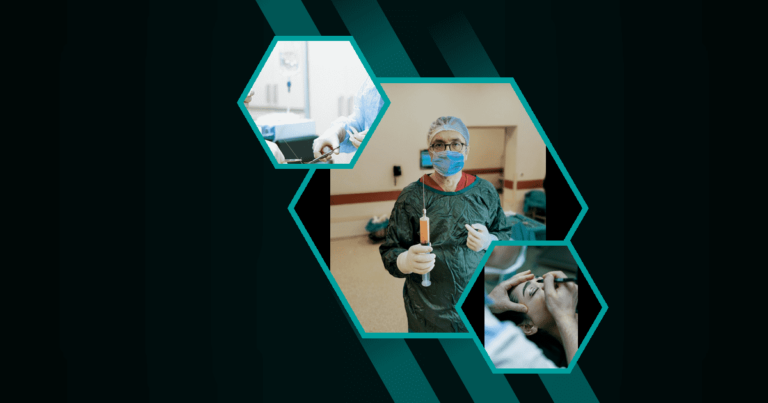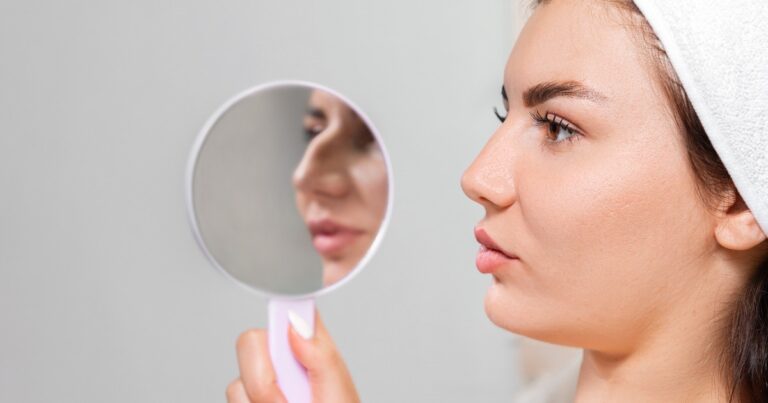Introduction
Rhinoplasty, commonly known as a nose job, is a transformative surgical procedure that can significantly enhance both the appearance and function of the nose. Understanding the before and after effects of rhinoplasty is crucial for anyone considering this surgery. This comprehensive guide will delve into the visual and functional transformations, patient testimonials, and experiences related to nose jobs, nose breathing, and wide nose surgeries.
Nose Job Before and After, Nose Breathing Before and After, Wide Nose Before and After Surgery
Visual and Functional Transformations
Rhinoplasty can lead to remarkable changes in both the appearance and functionality of the nose. Patients often report improved self-esteem and better nasal breathing post-surgery.
- Visual Transformations : Rhinoplasty can refine the shape, size, and symmetry of the nose, leading to a more balanced facial appearance.
- Functional Transformations : Many patients experience enhanced nasal breathing, which can significantly improve their quality of life.
Patient Testimonials and Experiences
Hearing from those who have undergone rhinoplasty can provide valuable insights into the process and outcomes.
- Patient A : “Before my nose job, I struggled with breathing issues and felt self-conscious about my wide nose. Post-surgery, I can breathe easily, and my confidence has soared.”
- Patient B : “The transformation was incredible. My nose looks natural, and I no longer have to deal with nasal congestion.”
What is Rhinoplasty?
Definition and Purpose
Rhinoplasty is a surgical procedure aimed at reshaping the nose for aesthetic or functional reasons. It can address various concerns, from cosmetic imperfections to breathing difficulties.
Book A Consultation With Dr Tarek Bayazid
Top-rated Plastic Surgeon For Plastic Surgery in Dubai
Installment Plan Available
- Purpose : To enhance the nose’s appearance and improve nasal function.
- Scope : Can involve altering the nose’s size, shape, or structure.
Common Reasons for Undergoing the Procedure
People opt for rhinoplasty for various reasons, including:
- Cosmetic Reasons : To correct a crooked nose, reduce a hump, or refine the nasal tip.
- Functional Reasons : To improve breathing issues caused by structural abnormalities.
Who Might Want to Get Rhinoplasty?
Cosmetic vs. Functional Reasons
Rhinoplasty can be pursued for both aesthetic and medical reasons.
- Cosmetic Reasons : Enhancing facial harmony and boosting self-confidence.
- Functional Reasons : Correcting structural issues that impair breathing.
Ideal Candidates for the Surgery
Not everyone is a suitable candidate for rhinoplasty. Ideal candidates typically include:
- Healthy Individuals : Those without serious medical conditions.
- Realistic Expectations : People who have a clear understanding of what the surgery can achieve.
What Does Rhinoplasty Do? 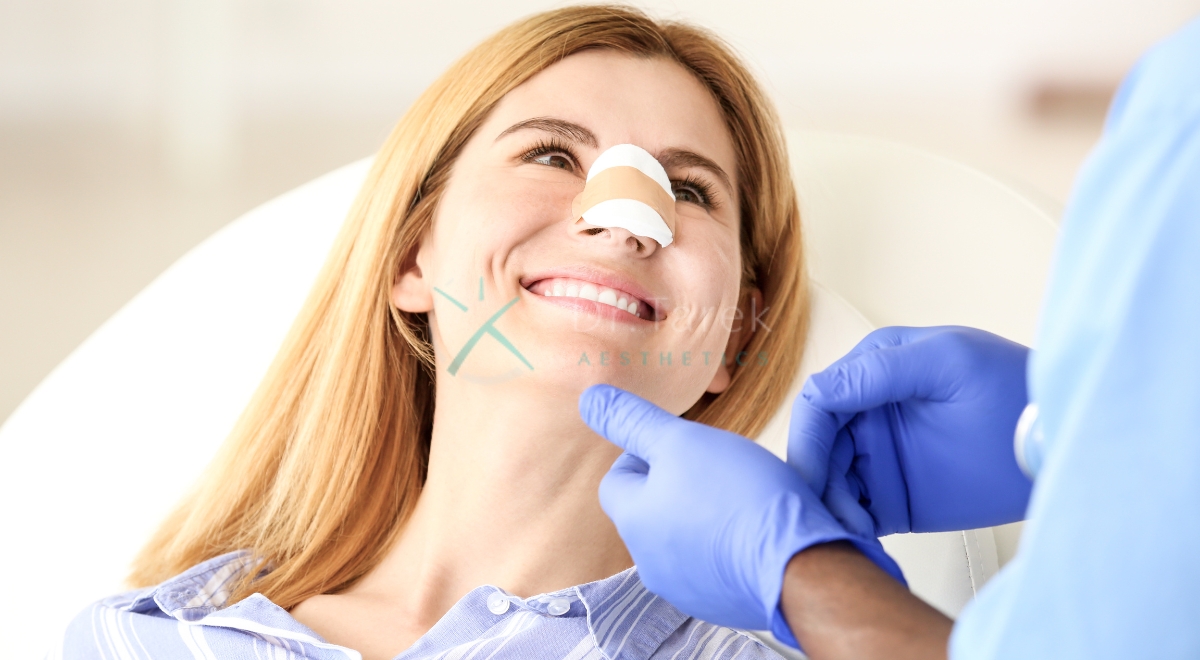
Aesthetic Improvements
Rhinoplasty can significantly enhance the nose’s appearance, leading to a more balanced and attractive facial profile.
- Refinement : Smoothing out bumps and refining the nasal tip.
- Symmetry : Correcting asymmetries for a more harmonious look.
Functional Enhancements, Including Improved Breathing
Beyond aesthetics, rhinoplasty can also improve nasal function.
- Breathing : Correcting structural issues to enhance airflow.
- Health Benefits : Reducing snoring and sleep apnea symptoms.
Different Surgical Approaches to Rhinoplasty
Open Rhinoplasty
Open rhinoplasty involves making an incision across the columella, providing better visibility and access for the surgeon.
- Advantages : Greater precision in reshaping the nose.
- Disadvantages : Visible scarring, though minimal.
Closed Rhinoplasty
Closed rhinoplasty involves incisions within the nostrils, leaving no visible scars.
- Advantages : No external scarring.
- Disadvantages : Limited access for complex reshaping.
Specialized Techniques for Wide Noses
Wide noses require specific techniques to achieve the desired results.
- Narrowing the Nose : Techniques to reduce the width of the nasal bridge.
- Alar Base Reduction : Reducing the width of the nostrils.
How Common is Rhinoplasty?
Statistics and Trends
Rhinoplasty is one of the most popular cosmetic surgeries worldwide.
- Prevalence : Thousands of procedures are performed annually.
- Trends : Increasing popularity among both men and women.
Popularity Among Different Demographics
Rhinoplasty appeals to a diverse range of individuals.
- Age Groups : Common among young adults and middle-aged individuals.
- Gender : Popular among both males and females.
Procedure Details 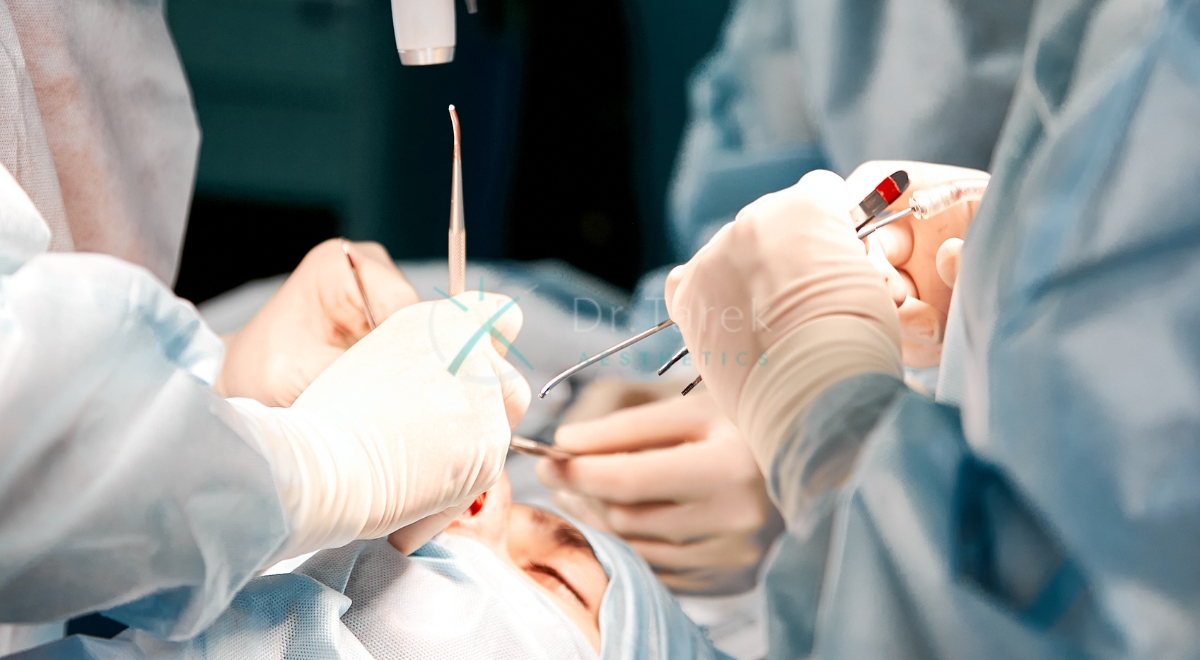
What Happens Before a Rhinoplasty Procedure?
Initial Consultation
The initial consultation is a crucial step in the rhinoplasty process.
- Assessment : The surgeon evaluates the patient’s nose and discusses their goals.
- Planning : A customized surgical plan is developed.
Pre-Surgery Preparations
Proper preparation is essential for a successful surgery.
- Medical Evaluation : Ensuring the patient is fit for surgery.
- Instructions : Guidelines on medications, smoking, and eating.
What Happens During a Rhinoplasty Procedure?
Surgical Steps
Rhinoplasty involves several key steps.
- Anesthesia : General or local anesthesia is administered.
- Incisions : Depending on the approach, incisions are made either inside the nostrils or across the columella.
Anesthesia Used
The type of anesthesia used can vary.
- General Anesthesia : The patient is completely unconscious.
- Local Anesthesia with Sedation : The patient is relaxed but awake.
What Happens After a Rhinoplasty Procedure?
Immediate Post-Operative Care
Post-operative care is crucial for a smooth recovery.
- Monitoring : The patient is monitored for any immediate complications.
- Instructions : Guidelines on caring for the surgical site and managing pain.
Long-Term Recovery Process
Recovery from rhinoplasty can take several months.
- Healing Stages : Initial swelling and bruising subside within a few weeks.
- Final Results : Full results may take up to a year to become apparent.
Risks and Benefits
What are the Advantages of Rhinoplasty?
Rhinoplasty offers numerous benefits.
- Enhanced Appearance : Improved facial harmony and self-confidence.
- Improved Nasal Function : Better breathing and reduced nasal congestion.
What are the Risks of Rhinoplasty?
Like any surgery, rhinoplasty carries risks.
- Complications : Infection, bleeding, and adverse reactions to anesthesia.
- Mitigation : Choosing a skilled surgeon and following post-operative care instructions.
Recovery and Outlook
What is the Recovery Time for Rhinoplasty?
Recovery time can vary from patient to patient.
- Initial Recovery : Most patients can return to work within 1-2 weeks.
- Full Recovery : Complete healing can take up to a year.
When Can I Go Back to My Regular Activities After Rhinoplasty Surgery?
Resuming daily activities should be done gradually.
- Work : Light activities can be resumed within a week.
- Exercise : Strenuous activities should be avoided for at least 4-6 weeks.
When Will I See the Results of Rhinoplasty?
Results can be seen at different stages.
- Initial Results : Visible within a few weeks.
- Final Results : Full results may take up to a year.
How Long Does Rhinoplasty Last?
Rhinoplasty results are generally long-lasting.
- Longevity : Results can last a lifetime with proper care.
- Maintenance : Avoiding trauma to the nose and following post-operative care.
When to Call the Doctor 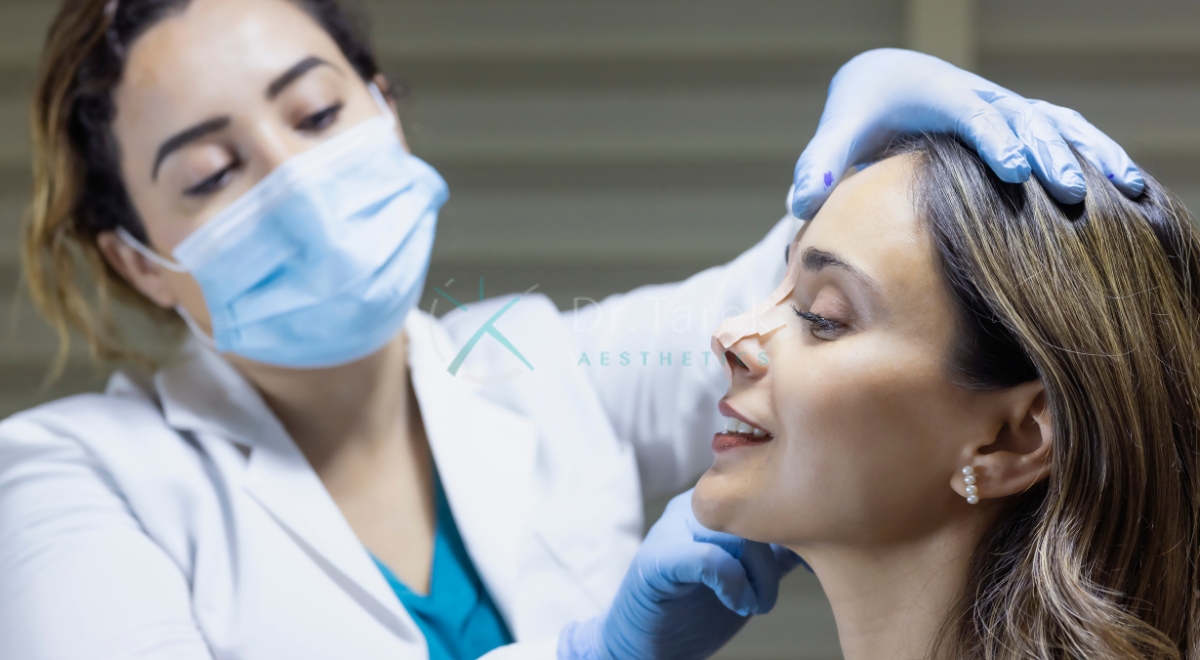
It’s important to know when to seek medical attention.
- Signs of Complications : Excessive bleeding, severe pain, or infection.
- Routine Follow-Up Visits : Regular check-ups to monitor healing.
Related Topics
Combined Functional and Cosmetic Rhinoplasty
Combining functional and cosmetic rhinoplasty can address both appearance and breathing issues in one surgery.
Revision Rhinoplasty
Revision rhinoplasty corrects issues from a previous surgery. It’s more complex and requires a highly skilled surgeon.
Chin Augmentation and Its Synergy with Rhinoplasty
Chin augmentation can enhance the results of rhinoplasty by improving facial balance and harmony.
Patient Resources
Pre and Post-Operative Care Tips
- Pre-Operative : Follow all pre-surgery instructions, including medication guidelines.
- Post-Operative : Adhere to care instructions, attend follow-up appointments, and avoid strenuous activities.
Support Groups and Forums
Joining support groups and forums can provide valuable insights and emotional support from others who have undergone rhinoplasty.
Gallery
Before and After Photos of Rhinoplasty
- Case Study 1 : A patient with a wide nose before and after surgery.
- Case Study 2 : A patient with breathing issues before and after rhinoplasty.
Case Studies and Success Stories
- Success Story 1 : A patient who experienced significant aesthetic and functional improvements.
- Success Story 2 : A patient who regained confidence and improved breathing post-surgery.
Contact Us
For more information or to schedule a consultation with Dr. Tarek, please visit our office locations or contact us through our website.
Tarek eyelid enhancement is a special way to make eyes look bigger and more open It helps people feel more confident about how their eyes appear Male rhinoplasty mastery involves expert skills in reshaping men’s noses Surgeons with
Aesthetic operations ache can happen when people get beauty treatments like facelifts or nose jobs These procedures might cause discomfort but are done to make someone look better
Frequently Asked Questions
How is Rhinoplasty Different from Septoplasty?
Rhinoplasty and septoplasty are distinct procedures. Rhinoplasty focuses on the external appearance of the nose, while septoplasty corrects internal structural issues to improve breathing.
Is Rhinoplasty a Simple Operation?
Rhinoplasty is a complex surgery that requires precision and expertise. The complexity depends on the extent of the changes needed.
Will I Need to Stay in the Hospital?
Most rhinoplasty procedures are outpatient surgeries. Patients can usually go home the same day, but some cases may require an overnight stay.
How Long is the Recovery Period?
The recovery period varies, but most patients can return to normal activities within a few weeks. Full recovery can take up to a year.
Are There Risks?
Rhinoplasty carries risks like any surgery. Common risks include infection, bleeding, and scarring. Choosing a skilled surgeon can minimize these risks.
Does Insurance Pay for a Rhinoplasty?
Insurance coverage for rhinoplasty depends on the reason for the surgery. Functional rhinoplasty may be covered, while cosmetic procedures are usually not.
How Much Does Rhinoplasty Cost?
The cost of rhinoplasty varies based on factors like the surgeon’s experience and the complexity of the procedure. On average, it ranges from $5,000 to $15,000.
Can I See What My Nose Might Look Like After Surgery?
Many surgeons use imaging and simulation tools to show potential results. These tools help set realistic expectations.
Is Rhinoplasty Painful?
Pain is usually manageable with medication. Most patients report discomfort rather than severe pain.
Will You Pack My Nose?
Nasal packing is sometimes used to control bleeding. Alternatives like splints may also be used.
How Long Will I Be Bruised?
Bruising typically lasts for 1-2 weeks. Keeping the head elevated and applying cold compresses can help reduce bruising.
What Should I Look for in a Surgeon?
Choose a board-certified surgeon with extensive experience in rhinoplasty. Look for before-and-after photos and patient testimonials.

